11 Types of Copywriting You Need to Know for 2025
You can use these different types of copywriting across industries and marketing channels. Click through if you want to close more deals in 2025.
COPYWRITING




Shane Curry
Different types of copywriting play various roles in your marketing. You might want to boost website traffic, spread awareness on social media, or sell through email.
I’ve done all these types of copywriting throughout my career. So here’s my two cents on them.
1. SEO Copywriting
SEO copywriting is creating engaging content for readers and optimised for search engines. The purpose is to help your website rank higher on search engine results pages (SERPs), which can increase organic traffic and visibility.
Your business needs SEO copywriting. Because it improves your website’s search engine rankings and makes it easier for people to find you online.
Key elements of SEO copywriting include:
Keyword research
Great user experience
Understanding user intent
Keyword Research
Keyword research involves finding keywords related to your business that people search for on Google. You strategically place relevant keywords throughout your content to match what users search.
Great User Experience
A great user experience makes the content easy to read and understand. This keeps readers engaged and encourages them to stay on the page longer.
Understanding User Intent
Understanding user intent means crafting content that directly addresses what the audience is searching for. Give them valuable information or solve their problems - with content or products.
2. Email Copywriting
Email copywriting gives you a direct line to your audience. Effective emails have compelling subject lines, clear calls to action, and personalised content.
Different types of email campaigns include:
Promotions
Newsletters
Drip campaigns
Promotions
Promotional emails focus on specific offers or products. They aim to drive sales or encourage a specific action.
Newsletters
Newsletters give subscribers regular updates. They offer valuable content, news, or tips to keep subscribers informed and engaged.
Drip Campaigns
Drip campaigns are a series of automated emails sent over time. They guide subscribers through a sales funnel or nurture leads.
Emails let you directly communicate with your audience, strengthen relationships, and drive sales. If you can build a decent list, email is still the most effective marketing channel.
3. Website Copywriting
Website copywriting is creating clear and compelling content for a website. It should effectively communicate your message and the value you offer.
Key areas of website copywriting include:
Homepage
About page
Service pages
Homepage
The homepage serves as the first impression for visitors. Tell people who you are, what you offer, and why they should care - as quickly as possible.
About Page
Your About page tells the story of the business. It helps create a connection with visitors and build trust.
Service Pages
Service pages provide detailed information about the products or services offered. They highlight how customers benefit and encourage action.
Keep the language on your website clear and simple. Use headlines and subheadings to break up the text and make it easy to scan.
Focus on the needs and benefits for the reader, rather than listing features. Always include calls to action to direct visitors towards the next step.
4. Advertising Copywriting
Advertising copywriting is writing persuasive content for advertisements to promote products, services, or brands.
The primary goals are to:
Capture attention
Generate interest
Encourage action
That’s usually making a purchase or signing up for a service.
Advertising copy can take many forms. Think print ads, digital ads, and social media ads.
You likely come across heaps of advertising copy throughout the day.
6. Landing Page Copywriting
Landing pages are designed to convert visitors. Your landing page should include:
A strong headline
Persuasive body copy
Social proof like testimonials
One clear call to action in different places
Landing pages are standalone web pages designed to drive a specific action - like buying a product. Nothing should distract from that single purpose.
I always recommend removing the navigation links on landing pages. And any other links that might distract customers.
Have one offer and focus everything on selling that.
Headline - be specific with your offer
Body copy - highlight benefits and address objections
Social proof - show reviews throughout the page (the more, the better)
Call to action - use one CTA, position it strategically at various stages, and tell people what to do next
You can use limited-time offers to create a sense of urgency. Offering money-back guarantees and no credit card signups also removes buying friction.
A/B testing different elements of a landing page can significantly improve conversion rates.
7. Direct Response Copywriting
Getting an immediate response from the reader is the aim of the game here. You want the audience to take action right away.
Some examples of direct response copywriting are:
Sales pages
Infomercials
Direct mail
Your hook must grab attention and clearly state the offer. Highlight the product benefits and address any potential objections to pique interest.
Emotional appeals and compelling language can connect with the reader’s desires. A clear and urgent call to action helps drive conversions.
8. Product Description Copywriting
Have an eCommerce business? Then you’re probably well-versed in product description copywriting.
Writing concise yet informative product descriptions is a skill. A well-written product description can:
Highlight the value of the product
Differentiate it from competitors
Persuade customers to buy
I liked using the FAB copywriting framework for product descriptions.
This is when you list:
Features
Advantages
Benefits
The structure helps you sell the product with limited words.
9. Technical Copywriting
Technical copywriting explains complex information in simple terms.
Many businesses need to educate and inform readers about technical products, services, or processes. They might need to help customers use a product effectively or understand a complex concept.
You’ll find technical copywriting in:
Manuals
White papers
Technical guides
I’ve only done one technical copywriting project. A white paper for a company that tests the structural stability of poles - traffic lights, flood lights, electrical pylons.
My advice is to use the simplest language possible. If you need to use technical terms, explain them. And diagrams and charts are always good when relevant.
10. Brand Copywriting
Brand copywriting is producing content that reflects a brand’s personality and values. It helps establish a recognisable presence in the market and create a deeper connection with customers.
Key details of brand copywriting are:
Voice
Tone
Storytelling
Voice
Voice gives your brand a distinct personality, expressed through its words and style. One way you can infuse style in writing is with rhythm.
Say you sell clothes to teenagers.
Your brand is: Energetic. Fast. Fun. Use short sentences. Quicken the rhythm.
Say you sell cognac to rich old men.
Your brand is luxurious and refined, full of poise and elegance, portraying a relaxed worldliness and a calm sophistication. Slow the rhythm with longer, run-on sentences.
Tone
The tone adjusts your voice to suit different contexts or audiences. You might switch between casual, professional, or friendly. Of course, it depends on the situation.
With our clothing example, you might change the tone to target parents. Maybe you’re running a Christmas campaign or something.
The cognac seller could also change the tone to target different audiences. A Father’s Day campaign springs to mind.
Storytelling
Storytelling is a huge part of building a brand. You share your brand’s story, values, and mission.
The right story resonates emotionally with your audience. This makes your brand more relatable and memorable.
Tapping into psychological archetypes is effective for brand storytelling. You can use one of the 12 brand archetypes:
The hero
The ruler
The sage
The lover
The rebel
The jester
The creator
The explorer
The innocent
The magician
The caregiver
The regular guy
11. B2B Copywriting
B2B (business-to-business) copywriting speaks directly to other businesses rather than individual consumers. It has unique demands because it usually targets decision-makers searching for solutions to specific business challenges.
B2B copywriting needs to be informative, authoritative, and persuasive. Otherwise, you won’t effectively communicate value and build trust.
But here’s another thing to remember about B2B copywriting. You’re still writing to a person, not a faceless company.
Sometimes, people suck all the personality out of B2B content because they want to sound professional. In my experience, that’s a mistake.
Keep it professional and personable for the best results.
Too busy to implement these copywriting tips?
Our free homepage copy audit can help.
We check your copy and make suggestions to maximise conversions.
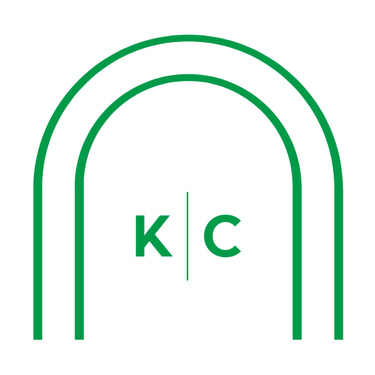
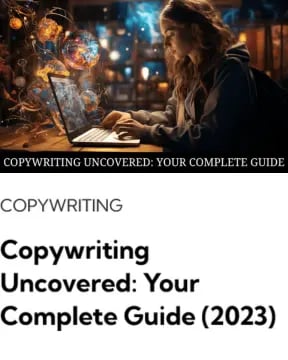
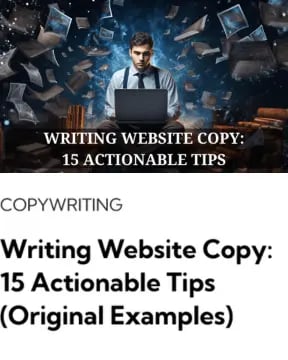
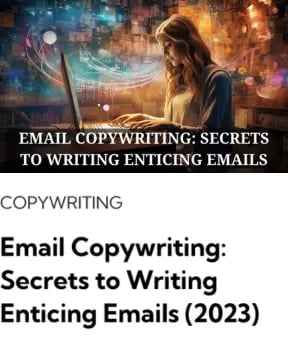
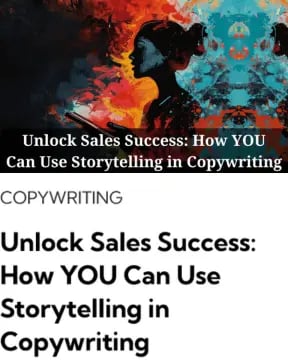
5. Social Media Copywriting
Social media copywriting is about creating short, engaging posts. These posts should drive interaction and engagement.
Platforms like X, Facebook, and LinkedIn have their own style and best practices.
Good social media copy can significantly impact how users interact with your brand. Get it right for more likes, shares, comments, and follows.
Above all, the best social media copywriting will bring in leads and customers.
The hook is arguably the most important part of social media copy. This first line needs to grab attention and get people interested.
Confession, social media is my least favourite type of copywriting.